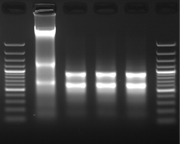???store.search.resultType???
???store.search.productResults???
???store.search.siteContent???
Refine Result

VWR® for nucleic acid preparation
Featuring solutions covering the entire workflow: Sample disruption & homogenisation, nucleic acid isolation, photometry, centrifugation & storage.
Need pure DNA or RNA?
get it quick & easy.